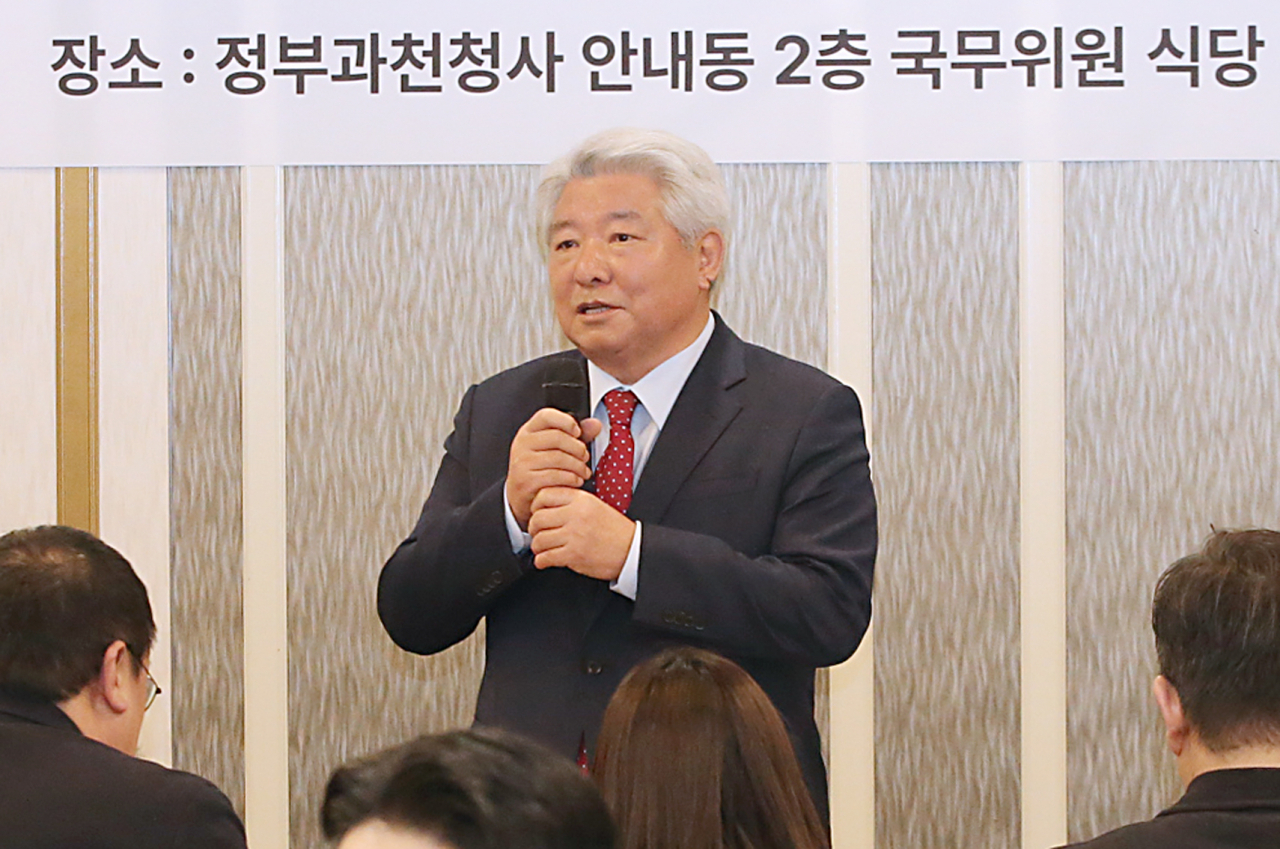 |
Kim Hong-il, chairman of the Korea Communications Commission speaks during a press conference held at the government complex in Gwacheon, Gyeonggi Province, Monday. (Korea Communications Commission) |
Broadcasting watchdog chief said Monday that scrapping the controversial handset subsidy ban can provide "greater benefits" to consumers as the removal would boost competition among mobile carriers to lower smartphone prices to sell more.
"The Mobile Device Distribution Improvement Act was legislated in 2014 to resolve excessive competition. As time passed, however, the act limited the local telecom carriers' competition and caused the cost of smartphones to become even more expensive," Kim Hong-il, chairman of the Korea Communications Commission said in a press briefing.
The Mobile Device Distribution Improvement Act came into effect in October 2014 to keep fierce competition to woo customers with hefty subsidies in check, but it only helped three local telecom giants -- SK Telecom, KT Corp. and LG Uplus -- reduce their marketing costs. Therefore, the government decided to scrap the decade-long controversial ban on handset subsidies last month.
While calling for the abolition of the law, the broadcasting agency is planning to amend the Mobile Device Act enforcement ordinance separately to keep mobile carriers competing against one another over subsidies. "Even if abolished, there will be regulations that must remain in place," the KCC chairman said.
Monday's briefing marked the first of its kind since Kim was inaugurated on Dec. 29. A month after taking office, the broadcasting watchdog chief felt that the agency is facing "numerous tasks" to bring stability to the public and vowed to resolve the issues from the perspective of considering the convenience of people and their livelihood.
The KCC chief was also asked to share his opinion on the Fair Trade Commission's push to legislate the Platform Fair Competition Act, while the two agencies have been involved in a heated argument over platform regulations. Yet, he agreed on the necessity of implementing such rules to prevent unfair market activities by major online platform players.
Kim said, "The purpose is to correct any disadvantages caused by Big Tech firms' abuse of their dominant positions or unfair practices. I agree with the idea that in the larger framework, both the government's role and legislation are necessary."
The Fair Trade Commission is moving to legislate the Platform Fair Competition Act to regulate monopolistic practices by dominant online and mobile platform players whose influence has been growing at an alarming rate in Korea.
Recently, the US Chamber of Commerce openly opposed a proposed act, voicing concerns over the country’s apparent rush to pass the law. The National Assembly also showed concerns over the possibility of reverse discrimination toward local platform operators.
Kim, however, said that the Fair Trade Commission and related ministries are discussing and coordinating to minimize concerns, including dual regulation issues, domestic platform operators' obstacles to innovation and trade friction between Korea and the US.







